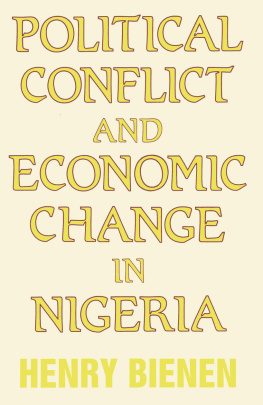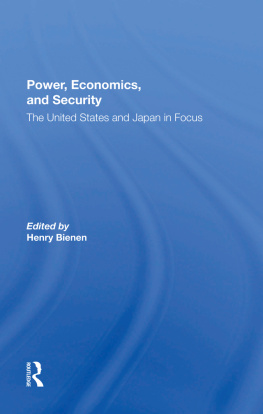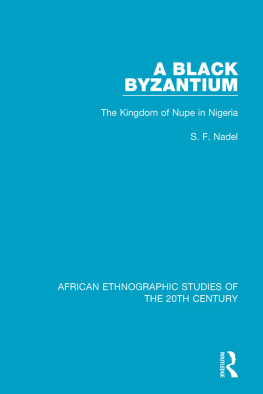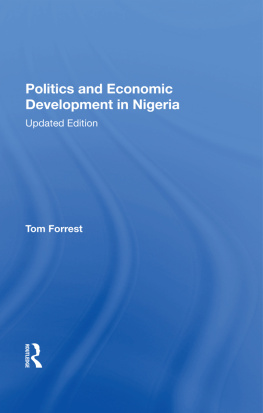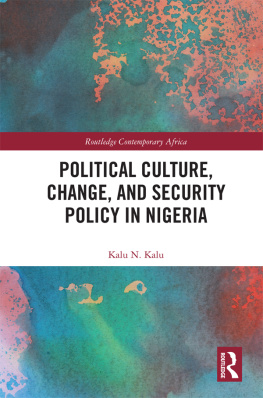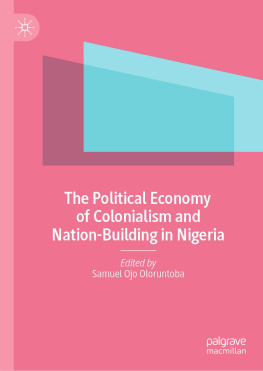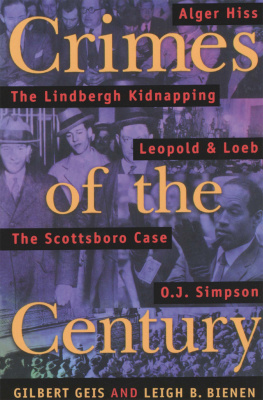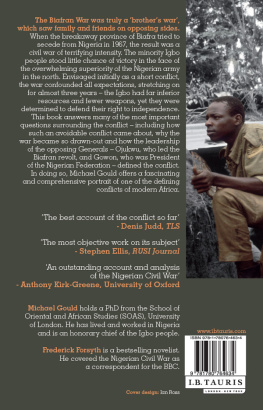POLITICAL CONFLICT AND ECONOMIC CHANGE IN NIGERIA
Written under the auspices of the Center of International Studies Princeton University
Also by Henry Bienen:
Tanzania: Party Transformation and Economic Development (1967 and 1970)
Violence and Social Change (1968)
Kenya: The Politics of Participation and Control (1974)
Editor and coauthor of:
The Military Intervenes: Case Studies in Political Development (1968)
The Military and Modernization (1970)
With David Morell:
Political Participation under Military Regimes (1976)
With V.P. Diejomaoh:
The Political Economy of Income Distribution in Nigeria (1981)
Political Conflict and Economic Change in Nigeria
Henry Bienen
Professor of Politics and International Affairs, Woodrow Wilson School, Princeton University
First published 1985 in Great Britain and in the United States of America by
FRANK CASS & CO. LTD.
Published 2013
by Routledge
2 Park Square, Milton Park, Abingdon, Oxon OX14 4RN
711 Third Avenue, New York, NY 10017 USA
Routledge is an imprint of the Taylor & Francis Group, an informa business
Copyright 1985 Henry Bienen
British Library Cataloguing in Publication Data
Bienen, Henry
Political conflict and economic change in
Nigeria.
1. Nigeria Social conditions 1960
I. Title
966.9'05 HN831.A8
ISBN 978-0-714-63266-7
ISBN 978-1-315-03509-3 (eISBN)
All rights reserved. No part of this publication may be reproduced in any form or by any means, electronic, mechanical, photocopying, recording or otherwise, without the prior written permission of the publisher.
To Leigh Buchanan Bienen, my wife and traveling companion
Contents
Political Conflict and Economic Change in Nigeria is based on articles and essays written between 1978 and 1983. These articles and essays have been edited but they have not been revised.
, 'The 1979 Nigerian Elections', is from Competitive Elections in Developing Countries, edited by Ergun Ozbudun and Myron Weiner, forthcoming, by permission of the American Enterprise Institute and Duke University Press. I am grateful to all the publishers for their permission to reprint these essays.
I have benefited from the comments of many people, James Finn and colleagues at the Council on Religion and International Affairs gave thoughtful criticisms of my paper on religion and economic change. Myron Weiner and Ergun Ozbudun were helpful editors for my paper on the 1979 elections in Nigeria. My colleagues at Princeton and in Nigeria and the United Kingdom who participated in the project of the Research Program in Development Studies of Princeton University on income distribution in Nigeria were most helpful in commenting on my own work for that joint endeavor. I want to especially thank my co-editor Vremudia Diejomaoh for all his help on the project and for all his effort in Nigeria.
I am in debt to the universities of Ibadan and Lagos for providing hospitality and intellectual and administrative homes for various undertakings over the last decade. Ambassador Donal Easum, now President of the African-American Institute, was always helpful to me in Nigeria. At Princeton University, my colleagues Robert Tignor and Mark Gersovitz have been friendly critics of various papers on Nigeria. Indeed, on oil revenues and policy choice relies on some work that Mark Gersovitz and I did together. This chapter also benefited from comments by Alan Gelb and Geoffrey Lamb of the World Bank and from Joan Nelson of the Overseas Development Council.
The Woodrow Wilson School has provided excellent administrative and secretarial support over the last years and Dean Donald Stokes has supported the research task of his faculty. While I was Director of the Research Program in Development Studies, and continuing to the present, Jerri Kavanagh has provided assistance on budgets, office management and my own work. To her I am especially grateful
I dedicated my first book on Tanzania to my wife in 1967. It is time to say thanks in this way again to Leigh Buchanan Bienen.
Henry Bienen
Chapter One
Introduction
In the early morning hours of 31 December 1984, the Nigerian military once again removed an elected head of state, A coup carried out by senior military officers ended the Second Republic which had been ushered in by elections at the end of 1979. The 1979 elections had been won by Alhaji Shehu Shagari. He had come to the Nigerian presidency under a cloud since there was a dispute as to whether he had fulfilled the constitutional provisions of the Second Republic. For a Nigerian president to be duly elected, the constitution required that he win a plurality of the vote and that he win at least 25 per cent of the vote in two-thirds of Nigeria's 19 states. Shehu Shagari won 25 per cent of the vote in 12 states and about 20 per cent in a thirteenth state. The election would have been thrown into an electoral college if Shagari's election had not been sustained by a Special Electoral Tribunal and the courts all the way to the Supreme Court. The leaders of the armed forces, during the final days of their regime, made clear that they preferred that the presidency be decided by the votes that had taken place and not through an uncertain and stretched out process of an electoral college.
Thus for many Nigerians, and certainly for the leading opposition party, the Unity Party of Nigeria (UNP), led by Chief Obafemi Awolowo, the very installation of the new president lacked legitimacy and was seen as having been decided not by a constitutional and electoral process but, in the end, by a military leadership which preferred Shagari and his National Party of Nigeria (NPN). Since the Unity Party controlled five states by virtue of having won gubernatorial elections, and since the other parties that had contended in the 1979 elections, the Peoples Redemption Party (PRP), the Nigerian Peoples Party (NPP) and the Great Nigerian Peoples Party (GNPP) all won governorships and national and state legislative seats, they had a stake in maintaining civilian rule and the federal system of states. It was better not to rock the boat as that might bring back the armed forces. Instead, jockeying for coalitions in the national and state legislatures began immediately and all parties and leaders had an eye on the national elections of 1983.
During the four years of civilian rule, Nigeria's economy reeled under a drastic fall in oil revenues. Grandiose plans to industrialize were put forward and the regime committed itself to large-scale steel complexes and to building a new capital city at Abuja. Defense spending remained high. And, as oil revenues poured in and domestic demand for foodstuffs increased, Nigeria no longer exported substantial amounts of groundnuts or palm products. At the same time, it became an ever increasing importer of food grains. Plans, which were predicated on oil revenues to be produced by pumping over two million barrels a day at close to forty dollars a barrel, faced the reality of OPEC limits on Nigerian production to one and a third million barrels per day by 1983 and an oil price of under thirty dollars a barrel. During the years 1979-83, Nigeria often produced at under one million barrels per day because its oil was priced high in world markets. Its revenues, in real terms, were less than a third of anticipated funds. And, Nigeria had lost its agricultural export base. Furthermore, Nigeria, which had once vowed not to enter international money markets again as a borrower, became a country which owed probably more than 20 billion dollars in private and public debt. Its accounts were so chaotic that the only way to tell how much Nigeria really owed was to ask its creditors and then sum the results. The Central Bank, Ministry of Finance and the International Bank for Settlements all differed on Nigerian debt figures. While not a huge debtor by Brazilian, Mexican or Argentinian standards, Nigeria was listed as a serious debt problem by the end of 1983, as it fell into arrears on suppliers' credits on which its imports depended.


